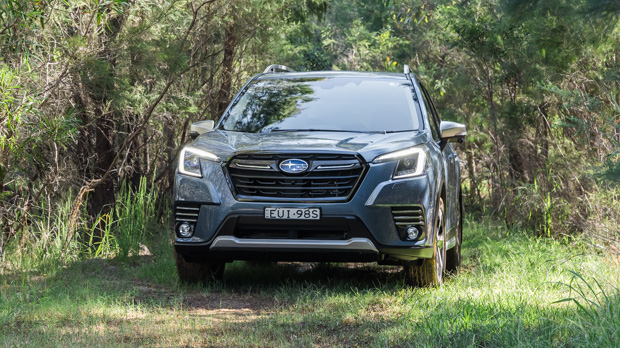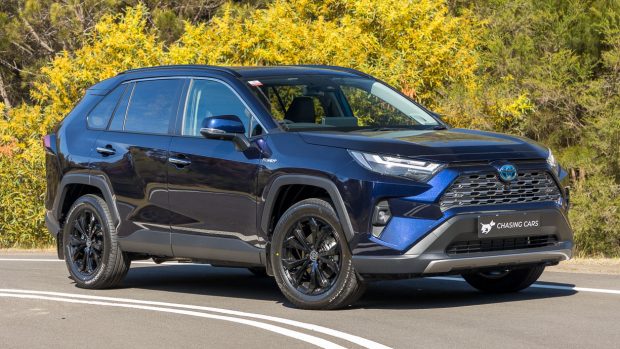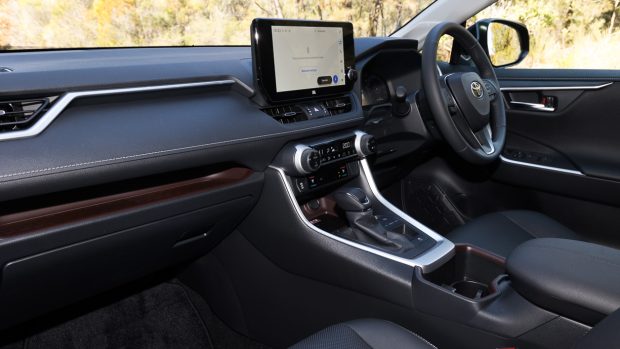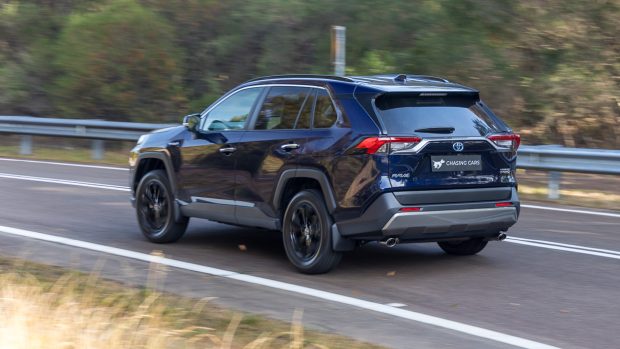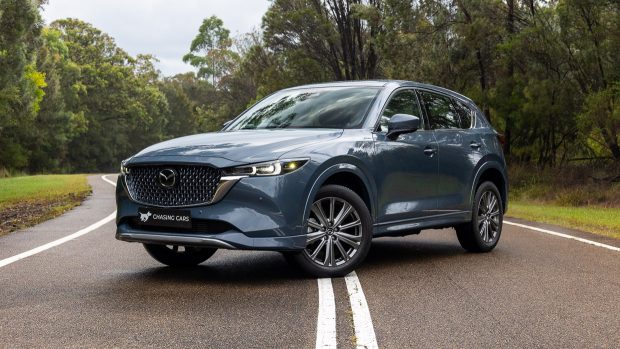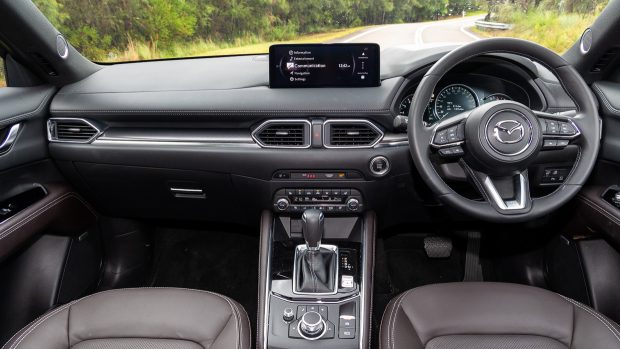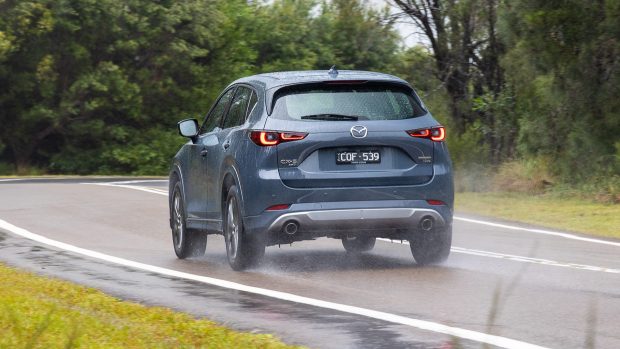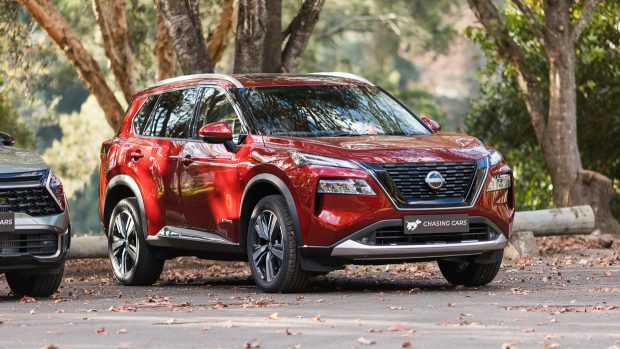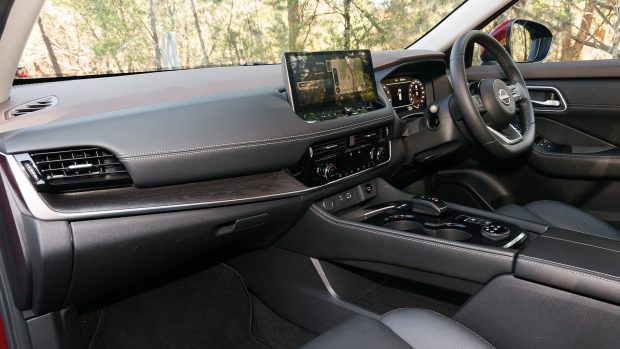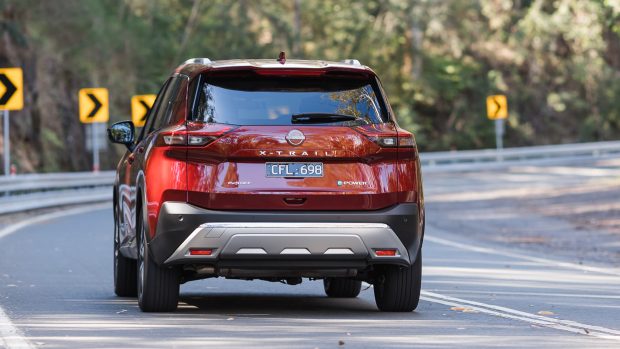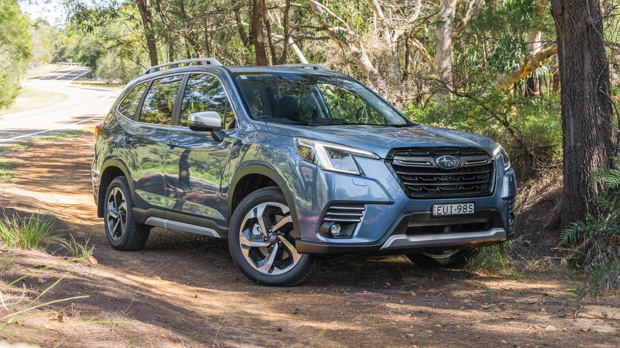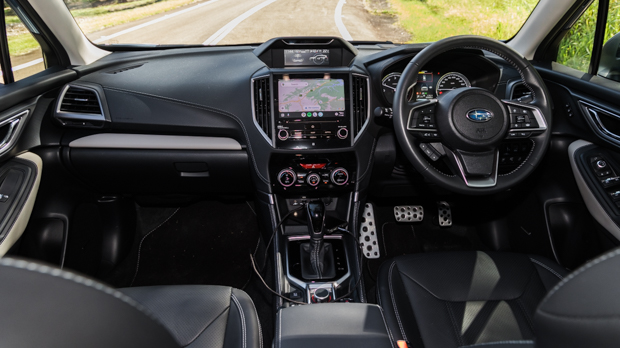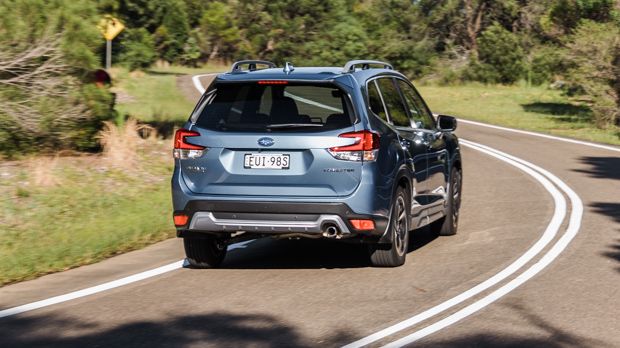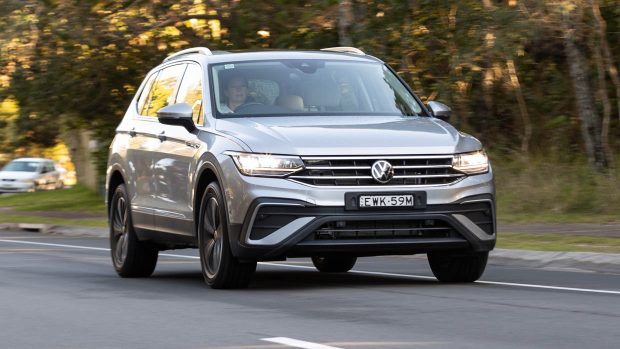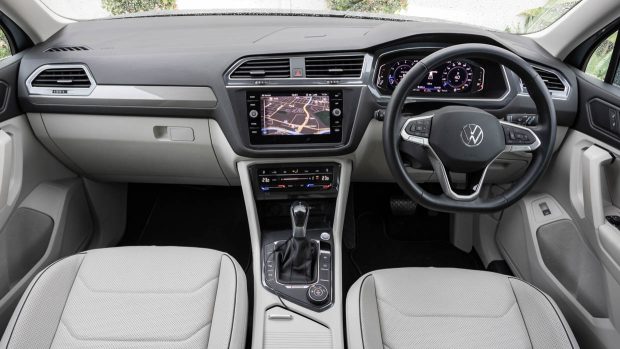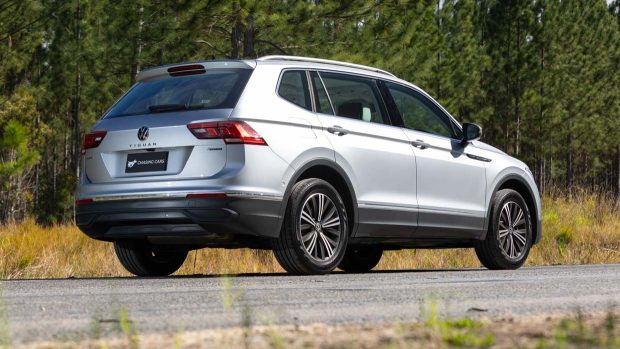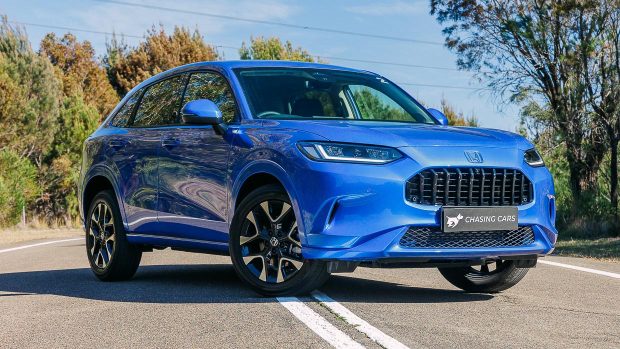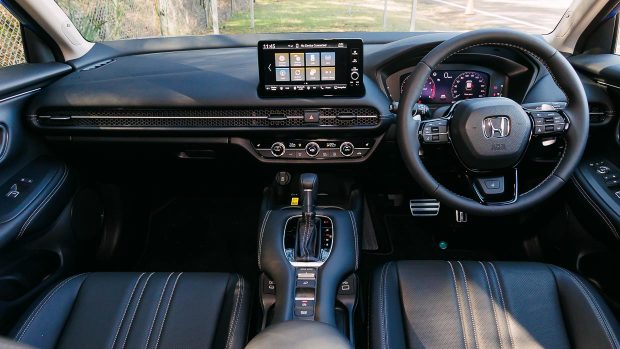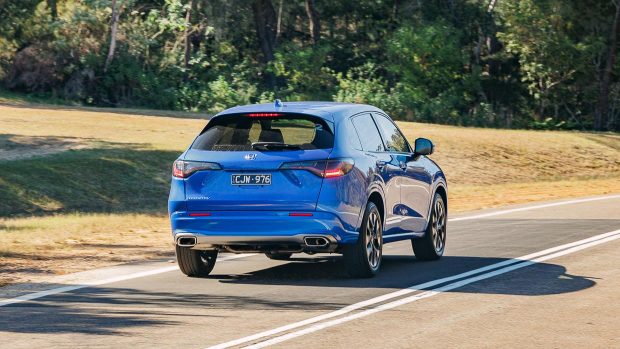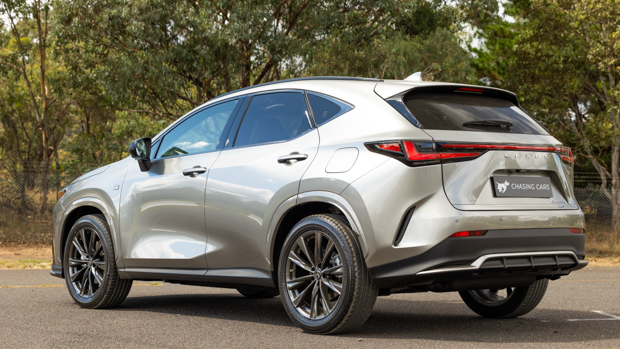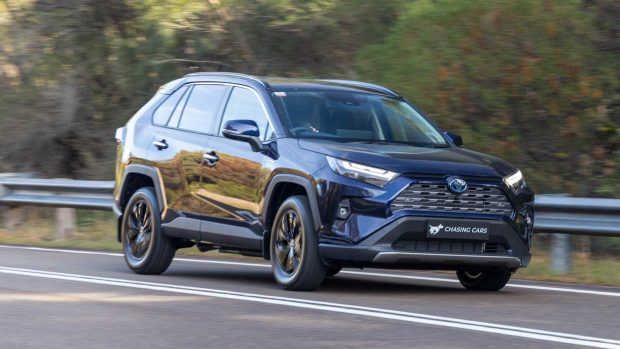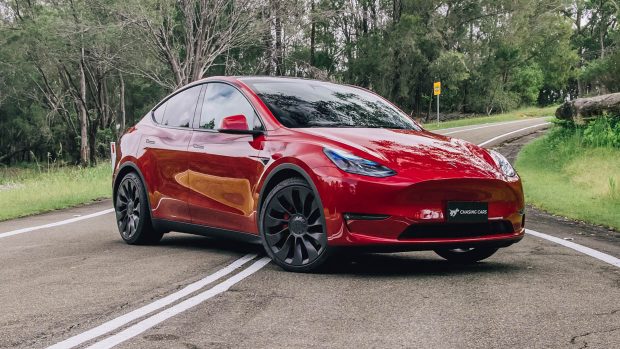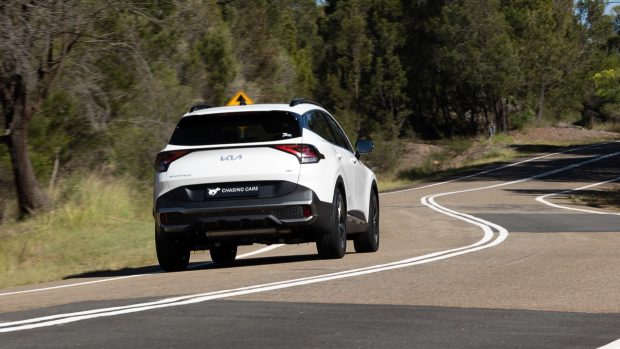-
Car Reviews
- All reviews
- Midsize SUVs
- Small cars
- Utes
- Small SUVs
- Large SUVs
- Large cars
- Sports SUVs
- Sports cars
- Vans
Latest reviews
- Car News
-
Car Comparisons
Latest comparisons
- Chasing Deals
What midsize SUV should you buy? In this article we outline what factors you should keep an eye out for and our top picks in this segment
More people buy midsize SUVs than any other vehicle type in Australia and for good reason. Their practical interiors, versatility and relative affordability provide a great balance for most Australian buyers.
Every year, more competitors are added to this segment so we’ve broken down our top picks and why you should – or shouldn’t – buy them, and also reflect on some upmarket luxury and hybrid-powered options.
First, let’s consider what you want in a new SUV. Here are five of the most important factors you’ll need to think about:
The Toyota RAV4 is Australia’s best-selling SUV and it’s easy to see why. In fact, it’s hard to find any real flaws in the current RAV4, despite having been on sale for five years. It’s also the previous outright winner of Chasing Cars’ midsize SUV megatest.
With an affordable base-model hybrid starting at just over $40,000 before on-road costs, it’s an SUV that most people can justify spending money on, given its fuel-sipping hybrid engine and class-leading resale value.
There are six grades to choose from including the entry-level GX, plusher GXL, sportier XSE, luxury-focused Cruiser and ruggedly styled Edge.
Its tough exterior styling and logical interior layout have also attracted a wide variety of buyers, many of whom also take great confidence in Toyota’s strong reputation for reliability and build quality.
Recent updates have introduced fresh styling details and new technology such as the 10.5-inch touchscreen and 12.3-inch instrument cluster. And as of 2024, the RAV4 is now only available with a hybrid drivetrain in Australia, given the overwhelming popularity of Toyota’s hybrid models.
Despite its relatively compact dimensions, the RAV4 packs a big boot of up to 580L, and on some grades offers a spare wheel on most grades, making it ideal for those who want to embark on interstate trips.
Although tested by ANCAP back in 2019, when criteria was more lenient than today, it packs plenty of safety features such as rear cross-traffic alert and parking sensors, along with front and rear Autonomous Emergency Braking (AEB).
Aside from being a bit more utilitarian than some rivals (that boast classier interiors and more advanced safety technology), and the RAV4’s slightly noisy 2.5L hybrid engine, it’s hard to fault this midsize SUV. Even after all these years, it remains a rock-solid choice for Australian buyers.
Learn more about the Toyota RAV4 by reading our in-depth reviews, covering the Cruiser Hybrid, GXL, Edge and more.
The second-generation Mazda CX-5 has been around since 2017 but its popularity is unwavering among Australian buyers – particularly those with young families.
Often described as ‘the driver’s midsize SUV’, the CX-5 injects a dose of fun into the ownership experience while still offering a well-constructed and practical interior.
The CX-5’s facelift in March 2022 saw its safety suite improved with reversing AEB and its model range revised. Then in late-2022 it received a technology and infotainment upgrade with USB-C ports and a new 10.25-inch touchscreen (with wireless Apple CarPlay and Android Auto) fitted to all models except the base Maxx 2.0L.
Some of the CX-5’s standard features include a leather steering wheel and LED headlights, while top-spec versions feature luxurious touches such as genuine Nappa leather upholstery and heated/ventilated front seats.
A total of five grades are offered, starting with the affordable 2.0L Maxx, followed by the 2.5L Maxx Sport and Touring, the sporty GT SP and the top-spec Akera.
While not all engines are available with all grades, Mazda offers three drivetrains to choose from, including an effortlessly rapid turbo-petrol flagship, though the frugal turbo-diesel has recently been discontinued.
The main weakness of the CX-5 is its comparative lack of interior space, particularly in the boot where it only swallows 438L – up to 150L less than several rivals.
Those looking for something more luxurious within Mazda’s range are also now offered the CX-60 with its alluring line-up of straight-six and plug-in-hybrid engines, though the newcomer is not as well-regarded dynamically as the nicely polished CX-5.
Learn more about the Mazda CX-5 by reading our in-depth reviews covering popular grades such as the GT SP Turbo, Akera and more.
Arriving in 2022 with an all-new fourth generation, the latest Nissan X-Trail took a huge step up in terms of safety, practicality, driving dynamics and cabin technology.
It’s available as either a traditional petrol, with the choice of front- or all-wheel-drive, plus the AWD-only E-Power hybrid variant.
Nissan’s X-Trail range comprises the ST, ST-L, N-Trek, Ti and Ti-L grades, with all but the ST and N-Trek available with the E-Power drivetrain. Petrol AWD variants of ST, ST-L and N-Trek are available with seven seats (instead of five), but being a midsize SUV, the third row is quite small.
Some standard feature highlights include LED headlights and tail-lights, an 8.0-inch touchscreen and adaptive cruise control, while higher grades score luxuries such as Nappa leather heated seats, a huge 12.3-inch touchscreen, and 10-speaker Bose sound system.
Although the X-Trail may not deliver the real-world fuel economy of the RAV4 Hybrid, it’s a slightly bigger vehicle inside and is similarly comfortable and composed out on the road.
Tested by ANCAP in 2021 under more strict testing criteria than some of its rivals, the five-star-rated X-Trail benefits from modern innovations such as a front-centre airbag.
Families will also appreciate a child occupant protection rating of 90 percent and the addition of reversing AEB as standard.
The X-Trail boasts boot space of up to 585L, though Nissan rather cheekily derives this number from the amount of space measured up to the roof, rather than the window line. Sliding rear seats in some grades provide more flexibility, however.
Production specialist Tom Place recently evaluated a Nissan X-Trail Ti E-Power across a long-term five-month period. Read more about this in our separate review.
You can also read our other reviews of the X-Trail covering the more affordable ST-L FWD grade and more.
Long-time favourite of families and/or adventure seekers, the Subaru Forester is a versatile machine with a friendly price tag.
While many SUVs try to look sportier with big wheels and skinny tyres, Subaru takes the opposite route by offering genuine off-road chops thanks to its 220mm of ground clearance, permanent AWD and very impressive ‘X-Mode’ terrain system.
Although Forester is offered as both a petrol and a hybrid, Chasing Cars has found the latter doesn’t deliver the fuel economy benefits to justify its $3000 surcharge.
A total of five grades are offered, all of them AWD: the 2.5i, 2.5i-L, 2.5i Premium, 2.5i Sport, and 2.5i-S. The Hybrid is offered in both ‘L’ and ‘S’ guise.
The non-hybrid Forester uses a 136kW/239Nm 2.5L flat-four mated to a CVT transmission and a full-time AWD system. In practice, it’s not particularly quick or fuel efficient, but it does the job respectably.
A frequent criticism of the Forester is the excessive engine noise blamed, in part, on its CVT transmission when being pushed, but it wins back points with its comfortable suspension tune and all-round ease of use.
Unlike the larger Subaru Outback (and Foresters offered in Japan), it lacks a turbocharged option locally – at least until the new-generation model arrives in the first half of 2025.
The Forester is fairly compact externally when sized up against its competitors, yet it still boasts impressive interior space, a 498L boot in petrol models, and is one of a diminishing few to offer a full-size spare wheel as standard.
Another unsung benefit of the Forester is its impressive maximum downball weight of up to 180kg – making it a popular choice for those looking to throw mountain bikes on the back.
Although the Subaru packs an impressive list of safety equipment, its five-star ANCAP rating was awarded in 2019 when some testing criteria was more lenient than for new vehicles tested today.
An all-new sixth-generation Forester is expected to make its debut internationally in late 2024 before arriving in Australia around March ’25, though possibly later.
Learn more about the Subaru Forester by reading our in-depth reviews covering the popular 2.5i-S grade, hybrid versions and more.
Finishing second in 2022’s Chasing Cars midsize SUV megatest was the second-generation Volkswagen Tiguan, an SUV many regard as one of the most ‘car-like’ to drive and a masterclass in maximising interior space.
The Tiguan is the only midsize SUV in Australia to be offered in two sizes – the five-seat regular model and a longer five- and seven-seat version known as the Tiguan Allspace.
Volkswagen’s regular Tiguan model is particularly compact for the class but stills packs heaps of interior space thanks to its extremely clever packaging.
Available with 1.4L and 2.0L turbo-petrol engines, most options with AWD, the Tiguan offers a varied line-up, though there is no hybrid option in Australia.
Grades are largely dependent on what engine you pick but they fundamentally consist of the value-focused Life, luxurious Elegance, sporty R-Line and the full-fat 235kW/350Nm Tiguan R.
The current Tiguan has been praised for its no-nonsense interior approach which retains physical controls for most functions, unlike many of Volkswagen’s newer vehicles.
The Tiguan is fitted as standard with an 8.0-inch touchscreen with wireless Apple CarPlay and Android Auto, three-zone climate control, 18-inch alloys and more.
Higher grades are offered with features such as a heated steering wheel, adaptive dampers, 20-inch wheels and a larger 9.2-inch multimedia screen.
January 2023 was the expiration date set for the Tiguan’s five-star ANCAP rating but continuous upgrades have resulted in a long list of safety equipment including reversing AEB, front and rear parking sensors, and a self-parking function all as standard.
Earlier this year, Volkswagen revealed a new-generation Tiguan internationally, though it’s not due to arrive in Australia until the first half of 2025.
Learn more about the Volkswagen Tiguan by reading our in-depth reviews, covering everything from the hot Tiguan R to the seven-seat 110TSI Life Allspace
Australia’s newest member of the medium SUV clan is Honda’s ZR-V, a new entry designed to fit snuggly between the HR-V small SUV and the larger CR-V medium SUV, which seats up to seven.
The five-seat ZR-V is one of Honda’s latest generation of more premium products, which have paid close attention to enhancing the look and feel of every button, knob and switch.
The result is a high-quality experience and that’s also true of the driving dynamics, making the ZR-V one of the best drives in its class.
Some rivals offer more room in the backseat, and the ZR-V’s boot space isn’t huge at around 370L but the experience is far from insufferable – especially given its relatively compact exterior dimensions.
Sadly, there is no AWD option for the ZR-V (you’ll need a CR-V for that) though you do get the choice of either a turbo-petrol or a hybrid drivetrain. A CVT transmission is used for both options.
The range is made up of the VTi-X, VTi-X+, VTi-L, VTi-L+, VTi-LX and the hybrid-powered e-HEV LX.
Some standard features include adaptive LED headlights, a 10.2-inch digital driver’s display, a 9.0-inch multimedia touchscreen with wireless Apple CarPlay, leather steering wheel and cloth seats, while higher grades score leather upholstery and a 12-speaker Bose sound system with subwoofer.
As part of the brand’s ‘Honda One Price Promise’, buyers will only ever pay the stated driveaway price, and Honda also offers some seriously cheap servicing, locked in at $199 for the first five scheduled visits.
Learn more about the ZR-V by reading our in-depth reviews covering both the petrol and hybrid versions.
Midsize SUVs that start above $60,000 are generally considered ‘luxury’ or ‘premium’ in Australia.
There are a lot of solid options including the BMW X3, Audi Q5, Volvo XC60 and Mercedes-Benz GLC – plus newer rivals such as the Genesis GV70 and the now all-electric second-generation Porsche Macan.
However, the second-generation Lexus NX is currently the most popular choice in Australia, available with turbo-petrol engines, plus several smooth and fuel-efficient AWD hybrid and plug-in hybrid options.
The latest NX also features more comfortable suspension than its mediocre predecessor, plus updated interior technology and luxury equipment – all at a price that often undercuts its popular European rivals.
The vast majority of RAV4s sold by Toyota over the past five years have been paired with a hybrid system and for good reason – the mid-sizer delivers combined fuel consumption of around 4.8L/100km. And since 2024, the RAV4 is now only offered with hybrid powertrains.
Previously alone in its segment, new rivals such as the Nissan X-Trail e-Power, Honda ZR-V e-HEV, Honda CR-V e-HEV, Kia Sportage Hybrid and Hyundai Tucson Hybrid are compelling alternatives. The underwhelming Subaru Forester Hybrid and sharply priced GWM Haval H6 Hybrid are rather less appealing options.
Since its introduction, the Tesla Model Y has taken Australia by storm with its clever design, hugely spacious interior and solid electric hardware that is capable of up to 533 km of WLTP range on a single charge.
Other intelligent options in this segment include the Kia EV6 and Hyundai Ioniq 5, as well as the forthcoming Kia EV5 and Polestar 4.
If you’re shopping for a midsize SUV, the good news is that you have more choices to pick from than any other vehicle type.
While it’s hard to look past the ultra-dependable Toyota RAV4, and many don’t, there is also the more sporting Mazda CX-5 and luxurious Volkswagen Tiguan, not to mention recently refreshed and/or hybridised versions of the roomy Hyundai Tucson and Kia Sportage.
For those looking to embrace the versatile nature of SUVs, the Subaru Forester AWD is a really solid choice and one that is particularly popular with families.
However, the modern safety features offered by the Nissan X-Trail and Honda ZR-V (and CR-V) bring strong peace of mind for these types of buyers, and it’s hard to put a price on having a safety net.
But many Aussies are now starting to look to the likes of the fully electric Tesla Model Y – a hugely popular SUV that has proved the naysayers wrong and was actually the world’s best-selling vehicle in 2023.
In truth, none of these SUVs are an unwise choice, broadly speaking. But some might be more suited to you and your priorities than others. So what aspects do you value most?
Latest comparisons
About Chasing cars
Chasing Cars reviews are 100% independent.
Because we are powered by Budget Direct Insurance, we don’t receive advertising or sales revenue from car manufacturers.
We’re truly independent – giving you Australia’s best car reviews.
